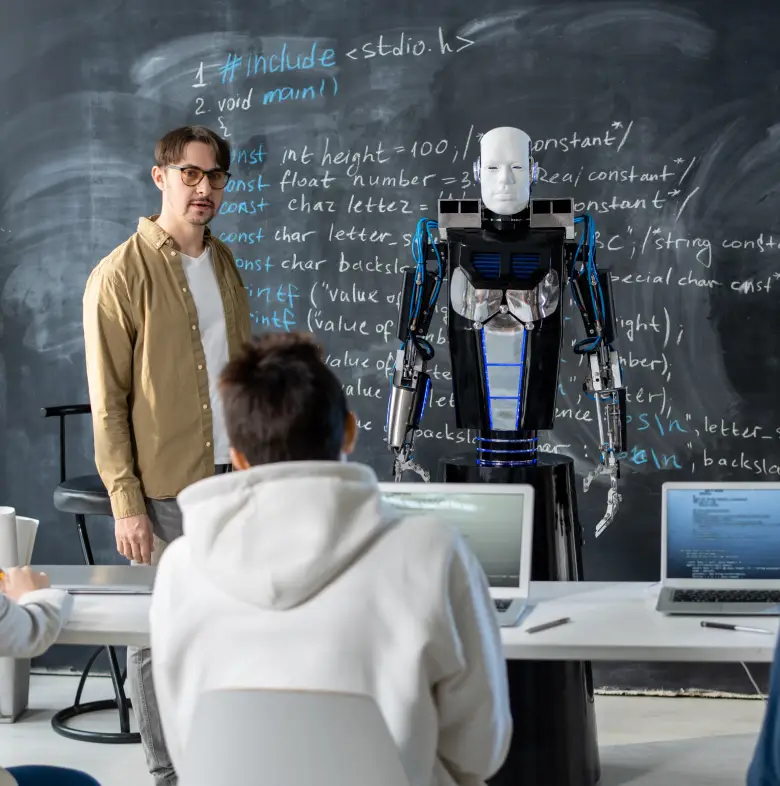Robotics and Artificial Intelligence
Robotics is a branch of technology that involves designing, building, and programming robots. Robots are machines that can perform tasks autonomously or semi-autonomously. They can be used in various industries such as manufacturing, healthcare, agriculture, and exploration. Robotics combines elements from mechanical engineering, electrical engineering, and computer science.
Artificial Intelligence refers to the simulation of human intelligence in machines that are programmed to think and learn like humans. AI enables machines to perform tasks that typically require human intelligence, such as problem-solving, decision-making, natural language processing, and pattern recognition. AI includes subfields like machine learning, natural language processing, computer vision, and expert systems.
Robotics and AI have a wide range of applications across various industries. For example, in manufacturing, robots can automate repetitive tasks, improve efficiency, and enhance precision. In healthcare, robotic surgery systems can assist surgeons in performing complex procedures with increased precision. AI-powered chatbots are used in customer service, while autonomous vehicles are an application of AI in transportation.

As robotics and AI advance, ethical considerations become important. Discussions around privacy, job displacement, biases in AI algorithms, and the potential impact of autonomous systems on society are ongoing. Ensuring responsible development and use of robotics and AI technologies is crucial to mitigate any negative consequences and ensure they benefit humanity. The field of robotics and AI offers exciting career opportunities. Professionals can work in research and development, designing and building robots, developing AI algorithms, working on autonomous systems, or applying AI in various industries. Job roles may include robotics engineer, AI specialist, machine learning engineer, data scientist, and robotics scientist. The combination of robotics and AI has the potential to revolutionize various industries, improve efficiency, and solve complex problems. It is an exciting field that offers opportunities for innovation and making a meaningful impact on society.
